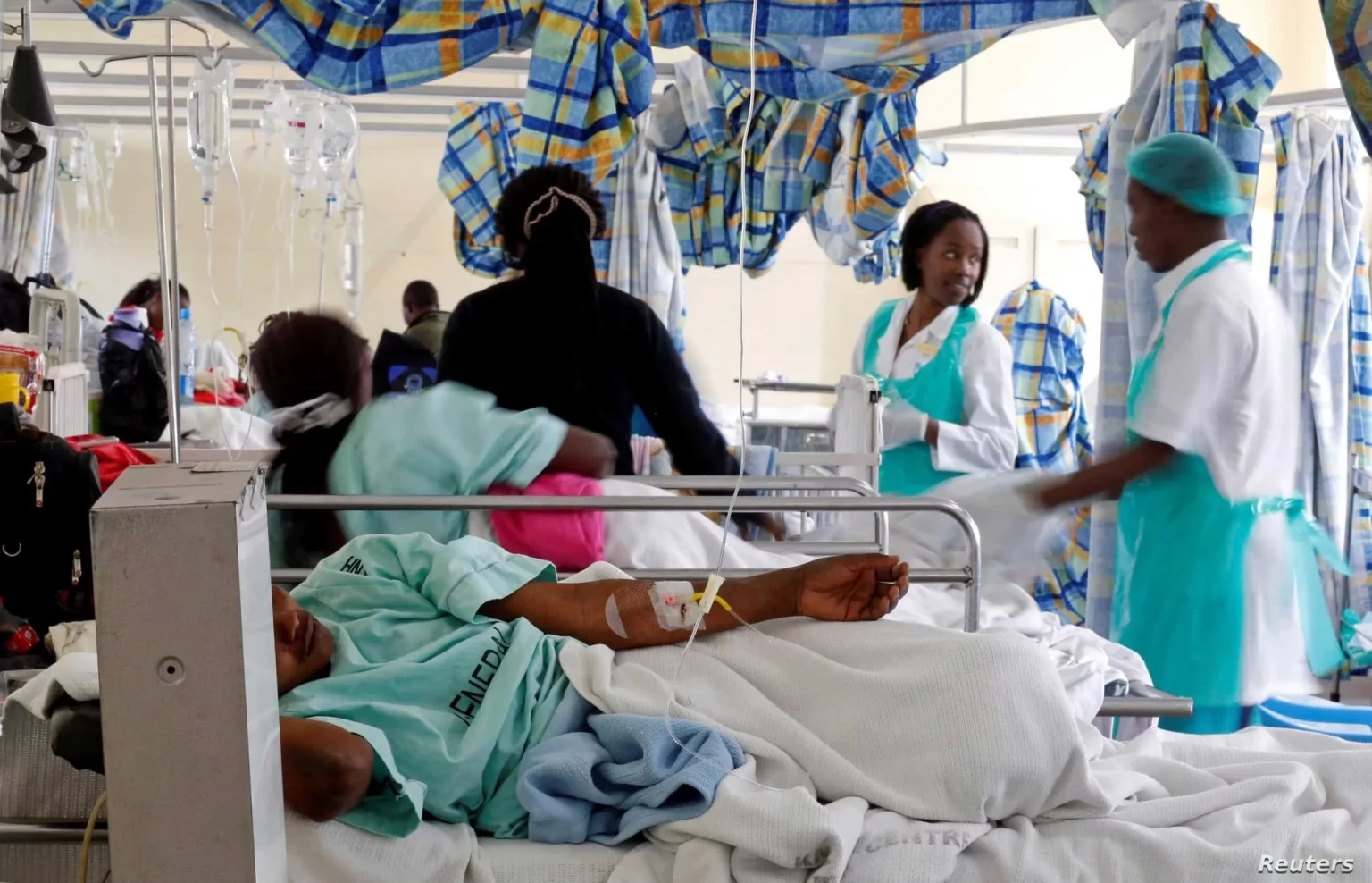Amid the onset of the rainy season across various parts of Nigeria, seasoned public health experts have expressed deep concern over the potential rise in cholera and other infectious diseases, warning that the combination of poor sanitation, unregulated waste disposal, and blocked drainage systems may trigger widespread outbreaks if not urgently addressed.
Professor Tanimola Akande, a renowned public health physician at the University of Ilorin, Kwara State, described the rainy season as both a blessing and a health threat. While acknowledging its importance for agriculture and water supply, he cautioned that the accompanying environmental changes—such as increased humidity, stagnant water, and frequent flooding—often create ideal conditions for disease outbreaks.
According to him, Nigeria’s persistent challenges with poor environmental hygiene, open defecation, and weak waste management systems are major enablers of outbreaks like cholera, typhoid fever, malaria, hepatitis A, and diarrhoeal diseases, especially during this season. He warned that unless individuals, communities, and relevant government agencies rise to the occasion, the country could soon be battling a preventable public health crisis.
Professor Akande noted that most of these diseases are aggravated by human behaviour and systemic failures. He explained that water sources are often contaminated with faecal matter washed in by floods, especially in areas where sewage disposal is not properly managed. He also emphasised that mosquitoes and houseflies thrive in environments filled with stagnant water, discarded containers, and uncovered waste, further worsening the public health risk.
“Blocked drainage channels, abandoned tyres, plastic cans and bottles filled with rainwater around residential areas become breeding sites for mosquitoes. In such conditions, malaria and dengue fever spread rapidly,” Akande stated.
As a former National Chairman of the Association of Public Health Physicians of Nigeria, he lamented the nation’s inadequate waste collection systems, noting that many communities still rely on illegal landfills and open dumping, which exacerbate disease outbreaks. He urged local councils and sanitation agencies to ensure that every settlement is covered with effective waste disposal mechanisms.
The professor also recommended intensified public health education, especially on sanitation and hygiene, using mass media, community leaders, and religious institutions. He called for a revival of sanitary inspection services to ensure routine checks of markets, eateries, residential areas, and public places.
Further speaking, Akande warned against open defecation and advocated for the use of hygienic toilets. He stressed the importance of personal hygiene practices, such as drying clothes under sunlight to prevent fungal infections and wearing clean, dry garments to avoid skin irritations, which are prevalent during damp weather.
He advised Nigerians to limit exposure to rain and avoid overcrowded indoor spaces during this period, as such settings make it easier for airborne infections to spread. He encouraged people to prioritise healthy diets, increase intake of immune-boosting foods like fruits rich in vitamin C, and drink only clean water.
On his part, Dr Onaeko Wemimo, a public health physician and Director of Environmental Health Management in Ogun State, highlighted the strong link between the rainy season and the rise in vector- and waterborne diseases. According to him, conditions such as malaria, dengue fever, cholera, typhoid, and leptospirosis become more rampant during this time due to stagnant water that allows mosquitoes and other disease vectors to multiply.
Dr Wemimo noted that the rainy season often triggers predictable disease patterns, which unfortunately catch many communities unprepared. He explained that malaria, primarily spread by the female Anopheles mosquito, remains the deadliest threat, while dengue fever—transmitted by Aedes mosquitoes—is gradually becoming more common in Nigeria due to climate change and weak vector control policies.
He stressed the importance of environmental control measures such as clearing stagnant water, using treated mosquito nets, sealing window and door gaps with screens, and applying engine oil or larvicides to water bodies that cannot be eliminated.
Beyond mosquito-borne illnesses, the health expert raised alarm over the increasing prevalence of cholera and typhoid outbreaks resulting from contaminated drinking water. He explained that during periods of heavy rainfall, human and animal waste often mix with surface water due to overflowing septic tanks and poor drainage, creating a direct path for infection.
Wemimo blamed the rising incidence of these illnesses on indiscriminate dumping of refuse, broken sewage systems, and poor sanitation in marketplaces and residential areas. He urged residents to take collective responsibility for their surroundings by removing all waste, clearing overgrown bushes, and ensuring all households have proper sewage and wastewater management systems.
On food safety, he warned Nigerians to be cautious about consuming meals prepared by roadside vendors, especially during this season, as the source of water used in preparation may be unsafe. He advised that families prepare their meals at home using clean water and maintain strict food hygiene.
Dr Wemimo also suggested that people shower after exposure to rain to rid their bodies of any potential pathogens, while regularly washing hands and wearing weather-appropriate clothing to prevent cold and flu. He further encouraged the consumption of hot beverages like tea and soup to stabilise the body temperature after getting wet.
He issued a strong warning against walking through floodwaters, noting that such water is often laced with sewage and other harmful contaminants. He explained that flooding may lead to leakage from faulty septic tanks, exposing entire communities to waterborne diseases.
While acknowledging ongoing awareness campaigns through media outreach, community development meetings, and environmental health sensitisation, Dr Wemimo decried the public’s apathy towards preventive messages. He lamented that many Nigerians only take health advisories seriously when faced with the cost of treating avoidable illnesses.
“Rainy season-related diseases are largely preventable. What is needed is awareness, personal responsibility, and collective community action. Nigerians must realise that prevention is always cheaper and safer than cure,” he concluded.


